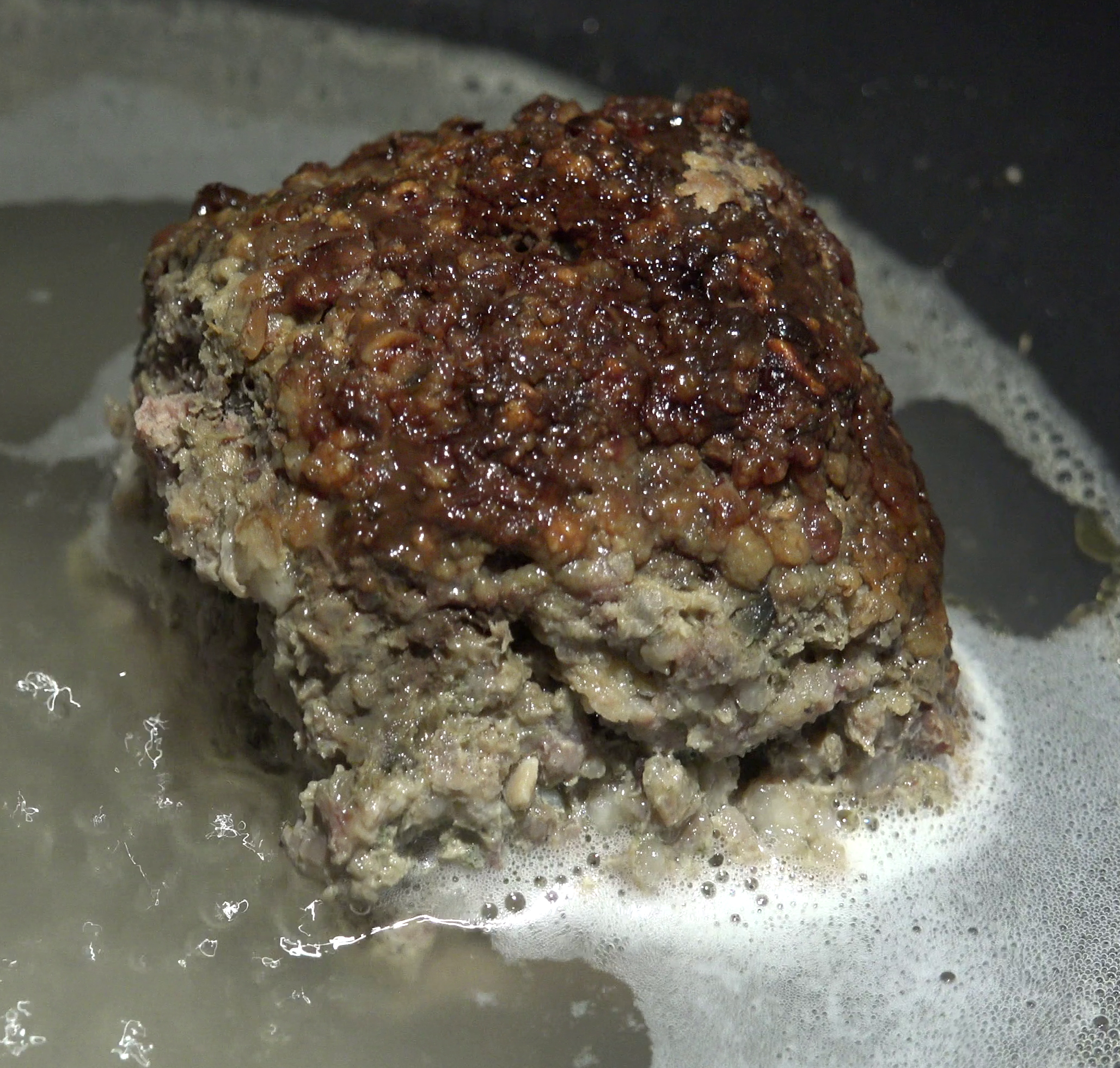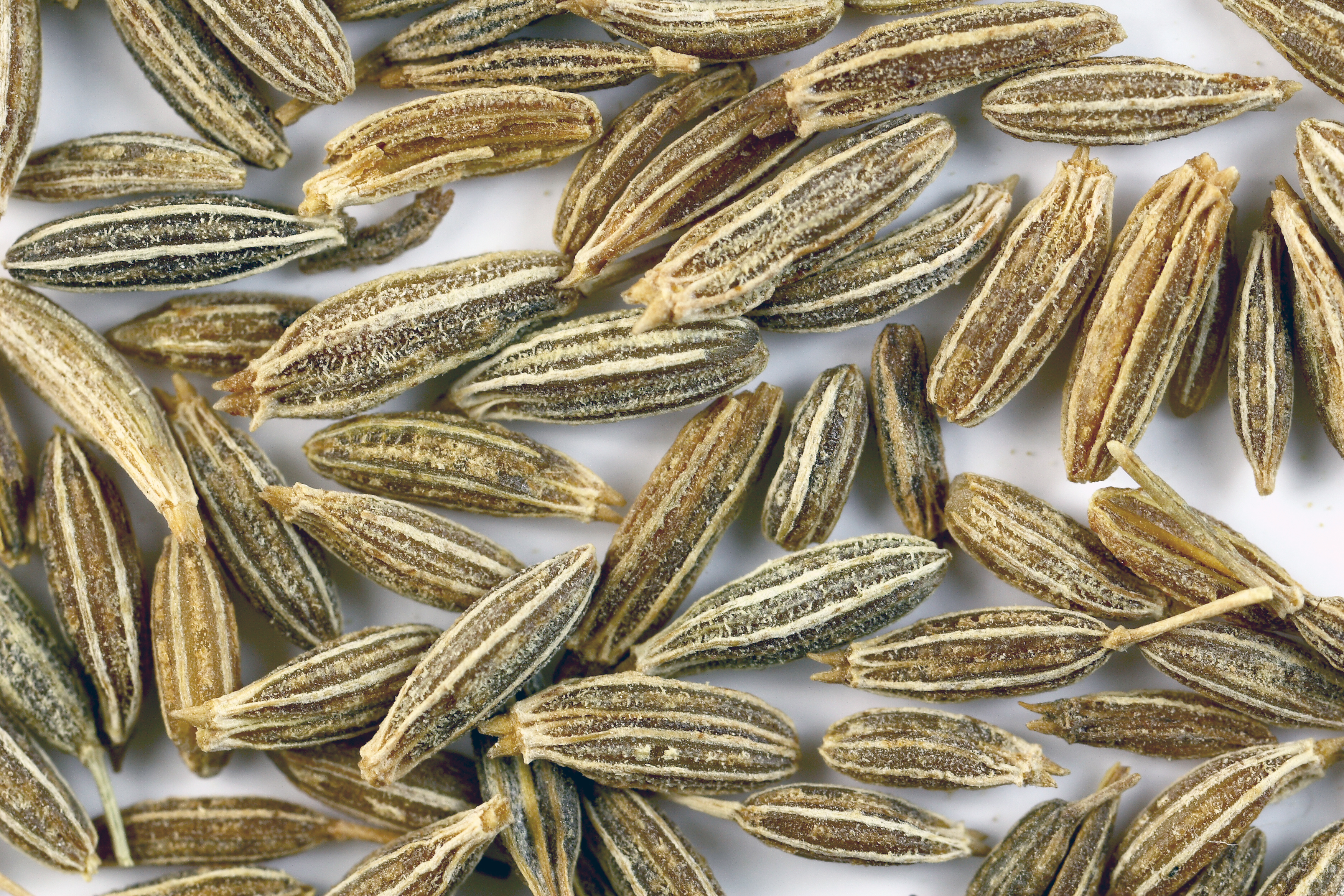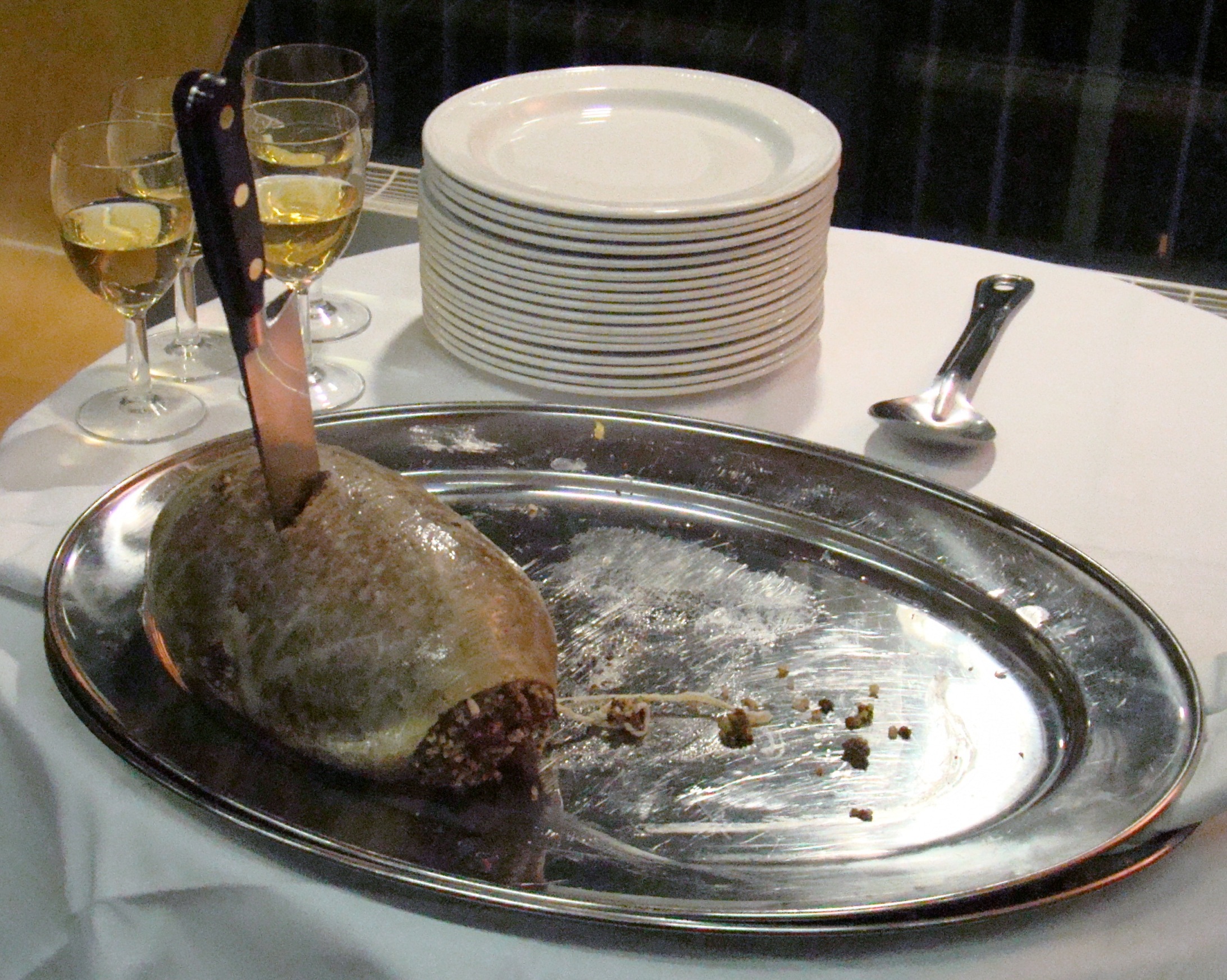|
Hog's Pudding
Hog's pudding is a type of sausage produced in Cornwall and Devon. Popular variants of the recipe consist of pork meat and fat, suet, bread, as well as oatmeal or pearl barley formed into a large sausage—also known as 'groats pudding' and are very similar to a white pudding, whereas other versions of the recipe contain a high percentage of offal such as lung and liver and can more accurately be described as a sort of West Country haggis. It is much spicier than white pudding as it contains black pepper, cumin, basil and garlic. The sausage is usually around two inches in diameter. See also *Black pudding *Boudin *Faggot *Scrapple Scrapple, also known by the Pennsylvania Dutch name ''Pannhaas'' ("pan tenderloin" in English), is traditionally a mush of pork scraps and trimmings combined with cornmeal and wheat flour, often buckwheat flour, and spices. The mush is formed ... References Cornish cuisine Devonshire cuisine British sausages Savory puddings ... [...More Info...] [...Related Items...] OR: [Wikipedia] [Google] [Baidu] |
Black Pepper
Black pepper (''Piper nigrum'') is a flowering vine in the family Piperaceae, cultivated for its fruit, known as a peppercorn, which is usually dried and used as a spice and seasoning. The fruit is a drupe (stonefruit) which is about in diameter (fresh and fully mature), dark red, and contains a stone which encloses a single pepper seed. Peppercorns and the ground pepper derived from them may be described simply as ''pepper'', or more precisely as ''black pepper'' (cooked and dried unripe fruit), ''green pepper'' (dried unripe fruit), or ''white pepper'' (ripe fruit seeds). Black pepper is native to the Malabar Coast of India, and the Malabar pepper is extensively cultivated there and in other tropical regions. Ground, dried, and cooked peppercorns have been used since antiquity, both for flavour and as a traditional medicine. Black pepper is the world's most traded spice, and is one of the most common spices added to cuisines around the world. Its spiciness is due to ... [...More Info...] [...Related Items...] OR: [Wikipedia] [Google] [Baidu] |
Devonshire Cuisine
Devon ( , historically known as Devonshire , ) is a ceremonial and non-metropolitan county in South West England. The most populous settlement in Devon is the city of Plymouth, followed by Devon's county town, the city of Exeter. Devon is a coastal county with cliffs and sandy beaches. Home to the largest open space in southern England, Dartmoor (), the county is predominately rural and has a relatively low population density for an English county. The county is bordered by Somerset to the north east, Dorset to the east, and Cornwall to the west. The county is split into the non-metropolitan districts of East Devon, Mid Devon, North Devon, South Hams, Teignbridge, Torridge, West Devon, Exeter, and the unitary authority areas of Plymouth, and Torbay. Combined as a ceremonial county, Devon's area is and its population is about 1.2 million. Devon derives its name from Dumnonia (the shift from ''m'' to ''v'' is a typical Celtic consonant shift). During the British ... [...More Info...] [...Related Items...] OR: [Wikipedia] [Google] [Baidu] |
Cornish Cuisine
Cornish cuisine encompasses the cooking styles, traditions and recipes associated with Cornwall and the Cornish people. It has been heavily influenced by the geography of the county as well as its social history. Cornwall, being a peninsula surrounded by seas historically well-stocked with fish, has meant that fish dishes form a major part of the historical and modern recipes in Cornwall. The fishing industry has played a major part in the economy of the county. The iconic dish of Cornwall, the pasty, has its roots in another historical industry within the county, this being mining. Certain Cornish food dishes have been granted protected geographical status under EU law, ensuring that they can only be labelled and marketed as "Cornish" if they are produced and mainly sourced within Cornwall. The Cornwall Food and Drink festival promotes Cornish cuisine and produce. A major theme is the use of game foods as well as fish. A number of high-profile Cornish restaurants and hotels us ... [...More Info...] [...Related Items...] OR: [Wikipedia] [Google] [Baidu] |
Scrapple
Scrapple, also known by the Pennsylvania Dutch name ''Pannhaas'' ("pan tenderloin" in English), is traditionally a mush of pork scraps and trimmings combined with cornmeal and wheat flour, often buckwheat flour, and spices. The mush is formed into a semi-solid congealed loaf, and slices of the scrapple are then pan-fried before serving. Scraps of meat left over from butchering, not used or sold elsewhere, were made into scrapple to avoid waste. Scrapple is primarily eaten in the southern Mid-Atlantic region of the United States (Delaware, Maryland, South Jersey, Pennsylvania, Virginia, and Washington, D.C.). Scrapple and ''panhaas'' are commonly considered an ethnic food of the Pennsylvania Dutch, including the Mennonites and Amish. Scrapple is found in supermarkets throughout the region in both fresh and frozen refrigerated cases. Composition Scrapple is typically made of hog offal, such as the head, heart, liver, and other trimmings, which are boiled with any bones attach ... [...More Info...] [...Related Items...] OR: [Wikipedia] [Google] [Baidu] |
Faggot (food)
Faggots are meatballs made from minced off-cuts and offal, especially pork (traditionally pig's heart, liver, and fatty belly meat or bacon) together with herbs for flavouring and sometimes added bread crumbs. It is a traditional dish in the United Kingdom, especially South and Mid Wales and the English Midlands. Faggots originated as a traditional cheap food consumed by ordinary country people in Western England, particularly west Wiltshire and the West Midlands. Their popularity spread from there, especially to South Wales in the mid-nineteenth century, when many agricultural workers left the land to work in the rapidly expanding industry and mines of that area. Faggots are also known as "ducks" in Yorkshire, Lincolnshire, and Lancashire, often as "savoury ducks". The first use of the term in print was in the ''Manchester Courier and Lancashire General Advertiser'' of Saturday 3 June 1843, a news report of a gluttonous man who ate twelve of them. Preparation and serving Com ... [...More Info...] [...Related Items...] OR: [Wikipedia] [Google] [Baidu] |
Boudin
Boudin () are various kinds of sausage in French, Luxembourgish, Belgian, Swiss, Québécois, Acadian, Aostan, Louisiana Creole, and Cajun cuisine. Etymology The Anglo-Norman word meant 'sausage', 'blood sausage' or 'entrails' in general. Its origin is unclear. It has been traced both to Romance and to Germanic roots, but there is not good evidence for either (cf. boudin. The English word "pudding" probably comes from . Types * '' ball'': A Cajun variation on . Instead of the filling being stuffed into pork casings, it is rolled into a ball, battered, and deep-fried. * : Originally, a white sausage made of pork without the blood. Variants include: ** French/Belgian boudin blanc, with milk. Generally sautéed or grilled. ** Cajun boudin blanc, made from a pork and rice mixture (much like dirty rice) in pork casings. Often includes pork liver and heart. Generally simmered or braised, although it may also be grilled. ** (): a traditional French , which may only contain ... [...More Info...] [...Related Items...] OR: [Wikipedia] [Google] [Baidu] |
Black Pudding
, type = , course = , place_of_origin = Great Britain and Ireland , region =England, Ireland, Scotland , associated_cuisine = United Kingdom and Ireland , creator = , year = , mintime = , maxtime = , served = Hot, occasionally cold , main_ingredient = Pork blood, fat, oats, or barley , minor_ingredient = Mint, thyme, marjoram, spices , variations = Drisheen, Sneem Black Pudding, Stornoway black pudding , serving_size = 100 g , calories = , calories_ref = , protein = , fat = , carbohydrate = , glycemic_index = , similar_dish = , , other = Black pudding is a distinct regional type of blood sausage originating in the United Kingdom and Ireland. It is made from pork or beef blood, with pork fat or beef suet, and a cereal, usually oatmeal, oat groats, or barley groats. The high proportion of cereal, along with the use of certain herbs such as pennyroyal, serves to distinguish black pudding from blood sausages eaten in other parts of the wor ... [...More Info...] [...Related Items...] OR: [Wikipedia] [Google] [Baidu] |
Garlic
Garlic (''Allium sativum'') is a species of bulbous flowering plant in the genus ''Allium''. Its close relatives include the onion, shallot, leek, chive, Welsh onion and Chinese onion. It is native to South Asia, Central Asia and northeastern Iran and has long been used as a seasoning worldwide, with a history of several thousand years of human consumption and use. It was known to ancient Egyptians and has been used as both a food flavoring and a traditional medicine. China produces 76% of the world's supply of garlic. Etymology The word ''garlic'' derives from Old English, ''garlēac'', meaning ''gar'' ( spear) and leek, as a 'spear-shaped leek'. Description ''Allium sativum'' is a perennial flowering plant growing from a bulb. It has a tall, erect flowering stem that grows up to . The leaf blade is flat, linear, solid, and approximately wide, with an acute apex. The plant may produce pink to purple flowers from July to September in the Northern Hemisphere. The b ... [...More Info...] [...Related Items...] OR: [Wikipedia] [Google] [Baidu] |
Basil
Basil (, ; ''Ocimum basilicum'' , also called great basil, is a culinary herb of the family Lamiaceae (mints). It is a tender plant, and is used in cuisines worldwide. In Western cuisine, the generic term "basil" refers to the variety also known as sweet basil or Genovese basil. Basil is native to tropical regions from Central Africa to Southeast Asia. In temperate climates basil is treated as an annual plant, however, basil can be grown as a short-lived perennial or biennial in warmer horticultural zones with tropical or Mediterranean climates. There are many varieties of basil including sweet basil, Thai basil (''O. basilicum'' var. ''thyrsiflora''), and Mrs. Burns' Lemon (''O. basilicum var. citriodora''). ''O. basilicum'' can cross-pollinate with other species of the ''Ocimum'' genus, producing hybrids such as lemon basil (''O. × citriodorum'') and African blue basil (''O. × kilimandscharicum''). Etymology The name "basil" comes from the Latin , and the ... [...More Info...] [...Related Items...] OR: [Wikipedia] [Google] [Baidu] |
Cumin
Cumin ( or , or Article title ) (''Cuminum cyminum'') is a in the , native to the . Its seeds – each one contained within a fruit, which is dried – are used in the cuisines of many c ... [...More Info...] [...Related Items...] OR: [Wikipedia] [Google] [Baidu] |
Haggis
Haggis ( gd, taigeis) is a savoury pudding containing sheep's pluck (heart, liver, and lungs), minced with onion, oatmeal, suet, spices, and salt, mixed with stock, and cooked while traditionally encased in the animal's stomach though now an artificial casing is often used instead. According to the 2001 English edition of the '' Larousse Gastronomique'': "Although its description is not immediately appealing, haggis has an excellent nutty texture and delicious savoury flavour". It is believed that food similar to haggis—perishable offal quickly cooked inside an animal's stomach, all conveniently available after a hunt—was eaten from ancient times. Although the name "hagws" or "hagese" was first recorded in England c. 1430, the dish is considered traditionally of Scottish origin. It is even the national dish, as a result of Scots poet Robert Burns' poem "Address to a Haggis" of 1786. Haggis is traditionally served with "neeps and tatties", boiled and mashed separately ... [...More Info...] [...Related Items...] OR: [Wikipedia] [Google] [Baidu] |







